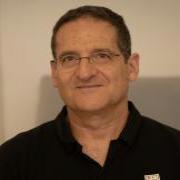Professor (Emeritus) Reuven Dar received his Ph.D. in clinical psychology from the University of Wisconsin-Madison in 1987 and completed his clinical internship and postdoctoral training at the Department of Psychiatry at the UW-Madison Medical School. He has been a member of the faculty of the School of Psychological Sciences at Tel Aviv University since 1988 and served as the head of the clinical graduate program for several terms. Prof. Dar’s work has led to the development of a comprehensive model of OCD, which postulates that obsessive-compulsive symptoms can be understood in terms of deficient access to internals states and compensatory reliance on “proxies” for these states.
פרופ' ראובן דר

Short Biography
Fields of Interest
Obsessive-compulsive disorder, psychological and biological determinants of smoking, research methodology.
Selected Publications
Sarna, N., Mazor, N., & Dar, R. (2025). Obsessive-compulsive visual search: A reexamination of presence-absence asymmetries. Clinical Psychological Sciences.
Borrelli, D. F., Tonna, M., & Dar, R. (2024). An investigation of the experience of control through the sense of agency in people with obsessive-compulsive disorder: a review and meta-analysis. CNS Spectrums, 1–31. doi:10.1017/S1092852924000117
Liberman, N., Lazarov, A., & Dar, R. (2023). Obsessive-compulsive disorder: The underlying role of diminished access to internal states. Current Directions in Psychological Science, 32(2), 118–124. https://doi.org/10.1177/09637214221128560
Dar, R., Sarna, N., Yardeni, G., & Lazarov, A. (2022). Are people with obsessive-compulsive disorder under-confident in their memory and perception? A review and meta-analysis. Psychological Medicine, 52(13): 2404–2412.
Dar, R., Lazarov, A., & Liberman, N. (2021). Seeking proxies for internal states (SPIS): Towards a novel model of obsessive-compulsive disorder. Behaviour Research and Therapy, 147, Article 103987. https://doi.org/10.1016/j.brat.2021.103987
Lazarov, A., Friedman, A., Comay, O., Liberman, N., & Dar, R. (2020). Obsessive-compulsive symptoms are related to reduced awareness of emotional valence. Journal of Affective Disorders, 282, 28-37.
Soref, A., Liberman, N., Abramovitch, A., Poznanski, Y., & Dar, R. (2018). Explicit instructions facilitate performance of OCD participants but impair performance of non-OCD participants on a serial reaction time task. Journal of Anxiety Disorders, 55, 56-62.
Reuven, O., Liberman, N., & Dar, R. (2014). The effect of physical cleaning on threatened morality in individuals with obsessive-compulsive disorder. Clinical Psychological Science, 2, 224.
Lazarov, A., Liberman, N., Hermesh, H., & Dar, R. (2014). Seeking proxies for internal states in obsessive-compulsive disorder. Journal of Abnormal Psychology, 4, 695–704.
Dar, R., Rosen-Korakin, N., Shapira, O., Gottlieb, Y., & Frenk, H. (2010). The craving to smoke in flight attendants: Relationships with duration of abstinence, anticipation of smoking and actual smoking. Journal of Abnormal Psychology, 119, 248-253.
Reuven-Magril, O., Dar, R., & Liberman, N. (2008). Illusion of control and behavioral control attempts in obsessive-compulsive disorder. Journal of Abnormal Psychology, 117, 334-341.
Dar, R., Stronguin, F., & Etter, J-F. (2005). Assigned vs. perceived placebo effects in nicotine replacement therapy for smoking reduction in Swiss smokers. Journal of Consulting and Clinical Psychology, 73, 350-353.





